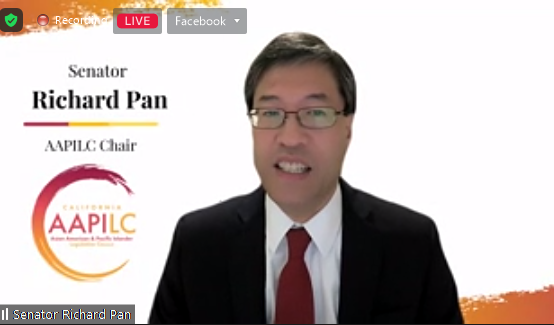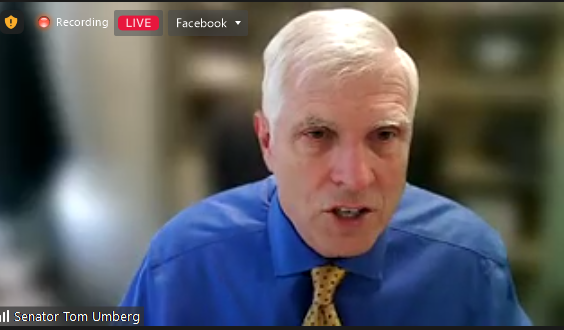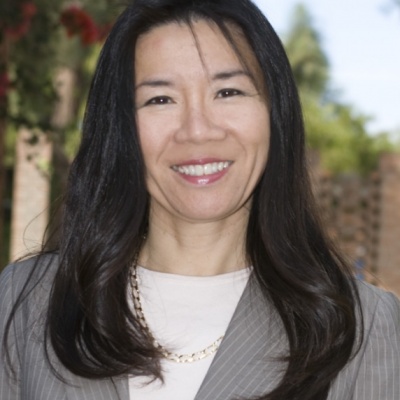SHORTAGE OF ACCREDITED ASIAN-LANGUAGE BILINGUAL TEACHERS SIGNIFICANTLY LIMITS ASIAN LANGUAGE SPEAKING STUDENTS’ EDUCATION OPTIONS
Asian Americans Advancing Justice – CA is Calling on the State
to Fix the Shortage with One-time Budget Ask of $5 Million
June 6, 2022, LOS ANGELES, CA – There is a dramatic shortage of accredited dual-immersion language teachers in California – a problem that significantly limits education options for Asian language speaking students. According to the California Department of Education, more than 1,000 bilingual accreditations were issued in the 2019-2020 school year; however, only 89 teachers were accredited in an Asian language.
Connie Chung Joe
“We must address the shortage of accredited Asian-language teachers,” said , Asian Americans Advancing Justice – Los Angeles CEO. “Access to dual-immersion language programs aren’t keeping up with demand. It’s unacceptable when Vietnamese and Mandarin were the second and third most spoken languages in K-12 public schools. Yet only 4 teachers were accredited to teach Vietnamese and 58 to teach Mandarin.”
The shortage of accredited dual-immersion teachers presents unique challenges for English learners who make up 25 percent of total enrollment in California public schools. Research has shown that dual language immersion programs benefit students by improving cognitive skills, enriching communication skills, and increasing earning potential. Additionally, exposing them to different cultures helps increase curiosity and empathy toward people from different backgrounds.
Chung Joe added, “In the rise of anti-Asian hate, exposing young learners to different cultures is especially important. We need to encourage students to feel more empathy and understanding toward different cultures at a time when discrimination toward people of color has become so prevalent.”
Advancing Justice – CA is calling on the legislature to fix the problem with a one-time budget request of $5 million to be allocated over the course of the next four years. The funding will go toward building the infrastructure needed to recruit, train and support aspiring teachers looking to earn the necessary accreditation to teach dual-immersion language programs.
Dr. Richard Pan, Senator and Chair of the Asian American & Pacific Islander Legislative Caucus
Dr. Richard Pan, Senator and Chair of the Asian American & Pacific Islander Legislative Caucus said, “There is tremendous demand for Asian-language dual-language immersion programs, but we need many more accredited Asian-language teachers. Language access to all public services including education is critical to AAPI communities, and the AAPI Legislative Caucus is requesting funding to train more Asian-language teachers so California students who want to be part of a dual-language immersion program are able to do so.”
California Senator Tom Umberg (Senate District 34)
Supporter of the budget request, California Senator Tom Umberg (Senate District 34), said, “I’ve seen first-hand the benefits of dual-immersion language programs as they are a critical component for preparing our students for the 21st-century economy giving them a competitive advantage whether they are going into college or career.”
Currently, the Asian Bilingual Teacher Education Program Consortium (the Consortium), representing ten campuses of the California State University (CSU) system, facilitates a multi-campus effort to increase the number of credentialed bilingual teachers in six languages: Mandarin, Cantonese, Japanese, Hmong, Korean and Vietnamese. The Consortium shares students and faculty resources among ten consortium member campuses through a concurrent enrollment procedure, offers courses and supports faculty to advise students and supervises student teachers for Asian bilingual authorization.
Without additional support, the financial burden of both pursuing accreditation and maintaining the language programs falls on students, teachers, and professors. Current teachers seeking accreditation have to take two classes and an exam. However, because of the low student count and lacking institutional support, these classes are pushed off the main campus to be hosted as extension courses. This means that current teachers have to pay additional tuition and do not have access to financial aid as a result.
Professor Fay Shin
“Additional resources are critical if we expect to maintain the Asian Bilingual Teacher Education Program Consortium,” said Professor Fay Shin, Chair of the CSU Asian Bilingual Teacher Education Program Consortium and professor at CSU Long Beach. “The current system is not sustainable as it puts too much of a burden on professors and those teachers seeking Asian-language accreditation. We’re calling on the legislature to provide the support needed to ensure California has a steady and robust pipeline of dual-immersion Asian-language teachers so we can meet growing demand among K-12 students.”
In 2015 voters repealed Prop. 227, which enforced an English-only approach teaching. Since then, there has been a significant resurgence of dual-immersion programs. However, the pipeline of accredited dual-language teachers, especially Asian-language teachers, coming into our schools has never fully recovered from Prop. 227.
















